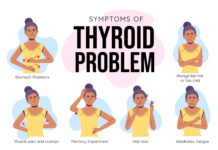By, Dr. Sreekanta Swamy, Lead Senior Consultant – Neurology, Aster RV Hospital
It is very important to create public awareness about Alzheimer’s disease, educate them to identify the disease in the early stage, to update the recent happenings in the diagnosis, and management of this problem.
Alzheimer’s Disease is the major cause of dementia. Dementia is a broad name for all those conditions which result in memory impairment. AD amounts to 70-75% of all dementias. There are other types of dementias which are less common e.g.: vascular dementia, frontotemporal dementia, dementia with Parkinson’s disease. Some reversible brain conditions, such as drug toxicity, metabolic changes, and infections, can also show dementia-like features.
ALSO READ: Preparing Future-Ready Talents in Auto Sector
Nearly 55 million people like with dementia all over the world, which expected to increase to 180 million in 2030. Over 60% of all [persons with dementia live in low- and middle-income countries. In India nearly 8.8% of people who are older than 60 years of age suffer from dementia. This is because of the increased survival of the aged population with improved healthcare facilities all over the world. Dementia is commonly seen after the age of 60 years. Dementia has significant physical, psychological, social and economic impact. In a study in 2019 the dementia related economical impact was nearly 1.3 trillion globally.
When we talk about dementia – mostly we mean dementia of Alzheimer’s type as it is the most common type of dementia.
Even though German doctor Alois Alzheimer described Alzheimer’s disease as early as 1906, researchers have not yet found any definitive methods to prevent or permanently cure it.
What ever we have at present is to slow down to progression. Lots of research are going on to find curative and preventive medications,
Alzheimer’s Disease is a progressive neurodegenerative disease resulting in significant memory impairment.
The disease affects mostly people above 60-65 years, females are more affected than males. It is commonly mistakes by general public as well as healthcare personnel as simply old age related changes, hence can go undiagnosed in a significant number of people. People below 40 years of age rarely develop the disease (about 10%), and genetic defects cause most of these cases.
Usually, progression of this disease is classified as early, middle and later stages.
In the early stage, patients may show mild mood or behavioral changes not normally seen in healthy individuals, along with mild memory impairment—mostly for recent events, such as forgetting where they kept things, tasks to do, or details of recent events.
In the middle stage- memory symptoms worsen to the extent of difficulty remembering the familiar names, sometimes not able to recognize the relatives and friends. Difficulty to find the way back when going out etc. Other symptoms like depression, anxiety, agitation, hallucination and sleep disturbances are common. This stage significantly affects his daily activities.
In the late stages, the affected person cannot even recognize his own family members, total loss of insight, loss of bowel and bladder control. Death usually occurs due to multiple systemic causes, like infection, pneumonia etc.
The main pathological change in brain is due to accumulation of protein call beta amyloid which forms plaques outside the nerve cells and another abnormal protein called Tau inside the nerve cells in the brain, which results in dysfunction and disconnection of neuronal signal transmission.
Normally doctors investigate these patients to find out if there are any treatable causes. The important investigations are few blood tests , brain scan(PET scan), CSF examination
Top Courses in Data Science Engineering
As of now there are no medication to cure this disease. Few of medications available since many years are given to slow down the progression of memory impairment.
Of late, the FDA-USA has approved two drugs, bringing new hope to Alzheimer’s disease sufferers. Both are expected to help if given in the early stages.
Few factors are supposed to increase the risk of developing dementia as noted in several studies
Age- after 60 yrs- changes of developing Alzheimer’s disease increase with age.
High blood pressure, Diabetes, obesity, chronic alcohol consumption, chronic smoking, depression, social isolation etc. Managing these factors from the early ages may help prevent developing dementia at the latter age
Many NGOs and government associations across the world, including India, have formed to help people with Alzheimer’s disease and their caregivers. These organisations aim to educate caregivers, provide financial help, train healthcare providers, and share updates on various advancements in Alzheimer’s disease research.
This year educate yourself and develop your career with EdTech Platform EasyShiksha.com






































































